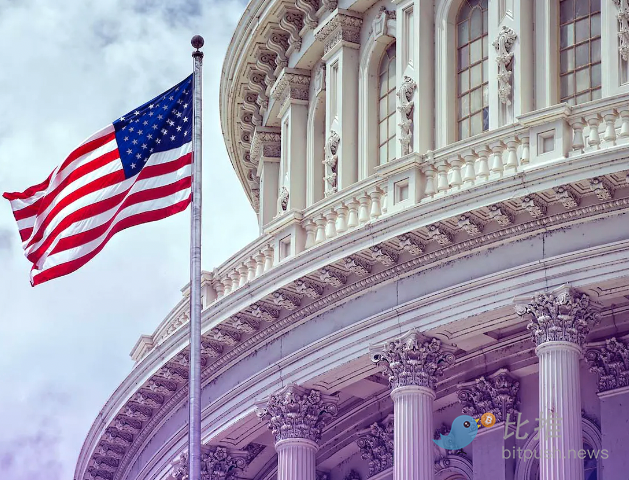US House Stablecoin Hearing: State and Federal Regulatory Authority Dispute Focus of Both Parties
US House hearing on stablecoins: State vs. Federal regulatory authority is the main point of disagreement.Original Article: “US House Stablecoin Hearing: State vs Federal Regulatory Authority Debate Becomes Bipartisan Focus”
Author: BitpushNews Mary Liu
At the May 18 US House hearing on stablecoins, the newly formed Digital Assets, Fintech, and Inclusive Subcommittee of the House Financial Services Committee heard from five expert witnesses as the committee considers two proposed stablecoin bills. One key point of contention between the parties during the hearing was the issue of state versus federal regulatory authority, with Republican and Democratic lawmakers failing to come to an agreement about the allocation of stablecoin regulatory powers.

- Conversation with Sui Developer Relations Manager: How to start developing on Sui from scratch?
- Analysis of Dune: A powerful and practical free on-chain analysis tool
- Will modularization become the ultimate solution for cross-chain?
Power Debate: State vs Federal Control
The proposal led by Republican representative French Hill (R-Ark.) was introduced in April ahead of the Financial Services Committee’s hearing. In response, Democratic senior representative Maxine Waters proposed a competitive bill, based on a previous piece of legislation that had been introduced but made no progress during the last Congress.
In the Republican-backed version of the proposal, the bill allows stablecoin operators to choose in which state they register, without needing approval from the Federal Reserve, with each state free to set their own standards and issuers having 180 days to submit all necessary registration materials to federal regulatory agencies. Supporters of the bill argue that this would prevent a “race to the bottom” and aligns with the US’s dual federal/state banking regulatory framework.
In the Democratic proposal led by Maxine Waters, the Federal Reserve System would take the lead, with the Democrats proposing to grant state regulatory agencies the power to approve issuer registration, while the Fed would retain the power to approve or disapprove federal registration. The Democrats are keenly interested in the qualifications of issuers, such as issuers should be federally insured depository institutions. It can also be expected that there will be provisions requiring stablecoin issuers and/or distributors to comply with some form of Know Your Customer (KYC) and anti-money laundering standards.
Some Democrats on the subcommittee objected to allowing state regulatory agencies to set stablecoin issuance standards, fearing that the bar may be lowered too much, leading crypto companies to turn to the most lenient regulatory states. Waters felt that the Republican proposal lacked “a few key positions,” and the highest-ranking Democrat on the subcommittee, Stephen Lynch (D-Mass.), felt that “We seem to be further diverging. My sense is that if we point this toward 50 states and territories, then this kind of practice could continue on, that the crypto industry will look for those jurisdictions that offer them the best opportunity, those jurisdictions, to maximize profit and avoid the more cumbersome and expensive regulatory and disclosure.”
However, Hill said, “We’re not starting from scratch, the similarities between the two proposals are strong, and our distance is not that far.”
Areas of consensus currently include the composition of stablecoin reserves (both bills include cash, short-term treasury bills, and central bank reserve deposits), requiring issuers to apply for approval or rejection within 90 days, and recognizing stablecoins as non-securities and allowing the Securities and Exchange Commission (SEC) to “take a back seat” in the field.
Davis Polk & Wardwell partner David Portilla supported the middle ground at the hearing. He said: “Federal regulation of stablecoin issuers will provide more uniform, consistent rules, while state regulation can promote more diversity and innovation in regulation, the answer to this issue may not be binary.” Portilla said that in any case, current regulations are not suitable for stablecoins, and in addition to the federal participation in stablecoin regulation to establish a minimum standard “bottom line” mechanism, “switching” can also be done according to the scale of issuance.
Stablecoins and the Cryptocurrency Market
Stablecoins like Tether’s USDT and Circle’s USDC have always been an important part of the cryptocurrency market. The Republican and Democratic parties in the House of Representatives have agreed on common goals, including addressing risks to consumers and maintaining the dollar’s position in global trade, which could be achieved through regulation of dollar-denominated stablecoins.
For the cryptocurrency industry eager for clarity on US regulation, there have been several recent hearings on stablecoins or broader cryptocurrency themes, and most members of the House and Senate seem to favor taking action. If they can cooperate on the stablecoin issue, this would be a significant step forward for US cryptocurrency regulation.
However, any legislation must go through the Senate Banking Committee, whose chairman, Senator Sherrod Brown (D-Ohio) (Ohio Democrat), has not indicated a willingness to advance such bills, posing another obstacle on the road to comprehensive stablecoin regulation.
We will continue to update Blocking; if you have any questions or suggestions, please contact us!
Was this article helpful?
93 out of 132 found this helpful
Related articles
- Themis Protocol: An all-in-one DeFi platform, powering the full growth of Filecoin
- What kind of Midjourney does Web 3 need? Exploring practical AIGC with Orbofi as an example
- Revolution of AI in Chain Games (Part 3): Electronic Games, the Hidden Driver of Technological Development
- Why do I always receive “Exchange Withdrawal” messages? Learn about the classification and protection measures of Web3.0 data leakage events in this article.
- Decentralization explorers of Rollup: Polygon, Starknet, and Espresso
- As the countdown to the debt ceiling negotiations begins, Biden and Republican leaders reassure the public that there will be no default.
- Is Binance joining ORC-20, marking the end of BRC-20?





